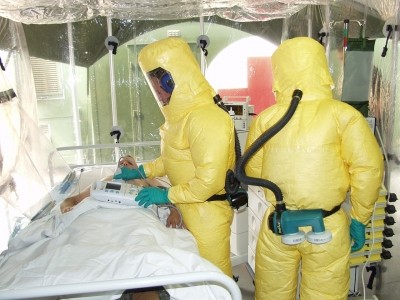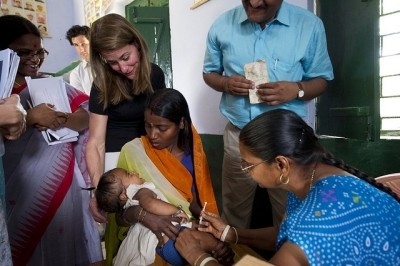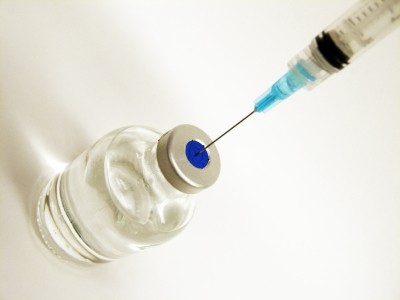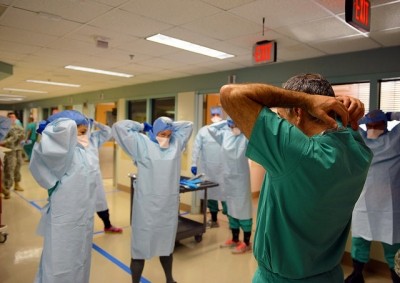Phase I success for GSK Ebola vaccine in sped-up trial
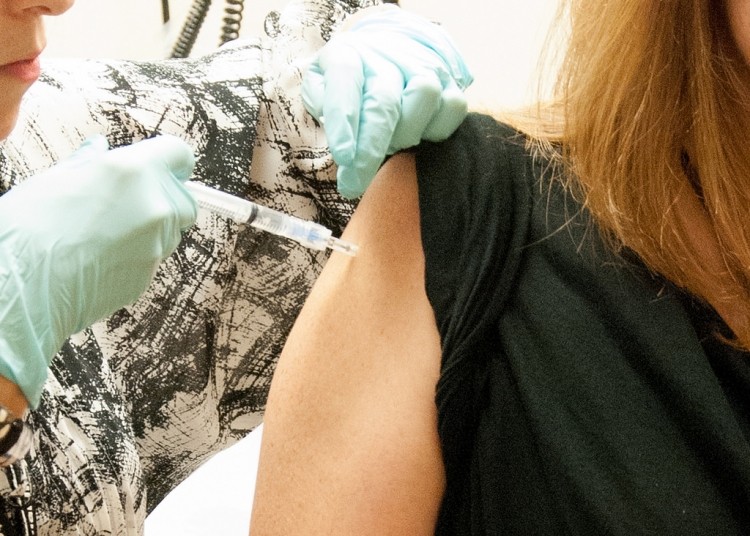
The candidate was “well-tolerated and produced an immunological response” in all 20 American volunteers who received it during a trial by the National Institutes of Health (NIH).
The NIH’s National Institute of Allergy and Infectious Diseases (NIAID) is supporting development of the cAd3 EBOV vaccine, helped by funding from the US government’s Biomedical Advanced Research and Development Authority (BARDA).
Manufacture
Production began in September by Okairos, a biotech GSK acquired in May 2013. The company had a target of 10,000 doses, grown in a human cell line in wave bags up to 200 litres.
Since scale-up, GSK has moved production to its own facility in Rixensart, its vaccine HQ in Belgium.
“GSK made a decision to move their resources and people to take it in-house,” said BARDA’s Director Robin Robinson at the annual meeting of the American Association of Pharmaceutical Scientists earlier this month.
“They reassigned their very best vaccine people – from upstream processing, downstream processing, formulation, lyophilisation, and clinical, to focus on this problem.”
Fast-track
The unusual speed of GSK’s Phase I trial was possible because of help from regulators and funders, the company’s spokeswoman told BioPharma-Reporter.com.
“The MHRA fast-tracked the review of the clinical trial application for this vaccine so that it was assessed and authorised by the MHRA’s experts in just four working days,” said Aoife Pauley.
“This is unusual and was achieved by the MHRA working closely with the researchers in the Oxford team to ensure that the time, including the weekend, could be fully utilised to rapidly address clarifications and modifications required following the initial assessment of the clinical trial application.”
As for funding, GSK said it had invested its own resources, as well as financing from the World Health Organisation (WHO), academic partners in the UK, US, Switzerland and Mali, the Wellcome Trust, the European Commission, and the Bill and Melinda Gates Foundation.
These partners have invested £18m ($29m) to date.
GSK’s spokeswoman told us that although the Ebola study had been completed very quickly, this timescale may not be replicable with other therapies.
“This Ebola outbreak is an unusual and rapidly changing situation with a unique risk-benefit scenario requiring a unique response that needs to be guided by the WHO and others. It may not be appropriate to apply this same method to accelerate other medicines and vaccine development programmes,” said Pauley.
Phase II
The vaccine candidate uses a type of chimpanzee cold virus, known as chimpanzee adenovirus type 3 (ChAd3), as a carrier to deliver genetic material from two strains of the Ebola virus – the Sudan strain and the Zaire strain, which is responsible for the current Ebola outbreak in west Africa.
GSK and the NIH are working on both this bivalent version, and a monovalent version which targets only the Zaire strain.
GSK told us if the ongoing Phase I trials with the monovalent vaccine in Oxford, Switzerland and Mali are successful, it intends to begin Phase II testing early next year. It also plans to look at whether a booster vaccine may help give longer-lasting protection.
Source: Chimpanzee Adenovirus Vector Ebola Vaccine — Preliminary Report, New England Journal of Medicine, November 26, 2014
DOI: 10.1056/NEJMoa1410863.
Share:
